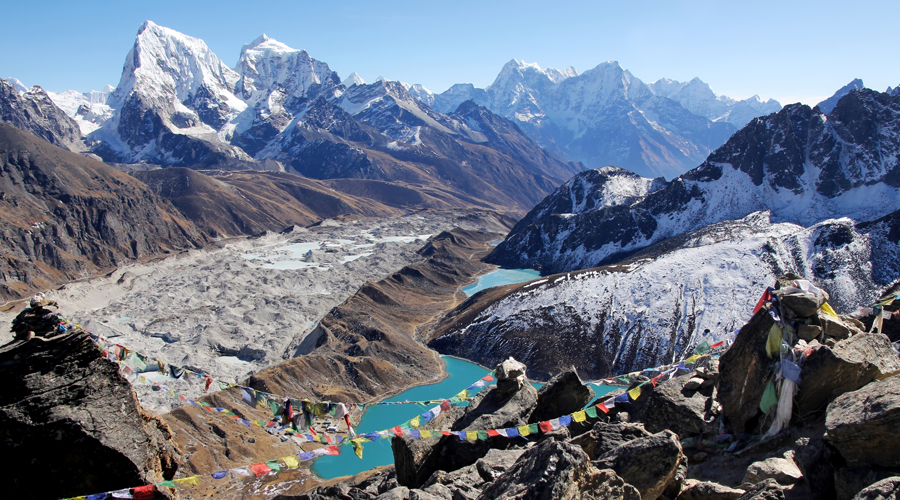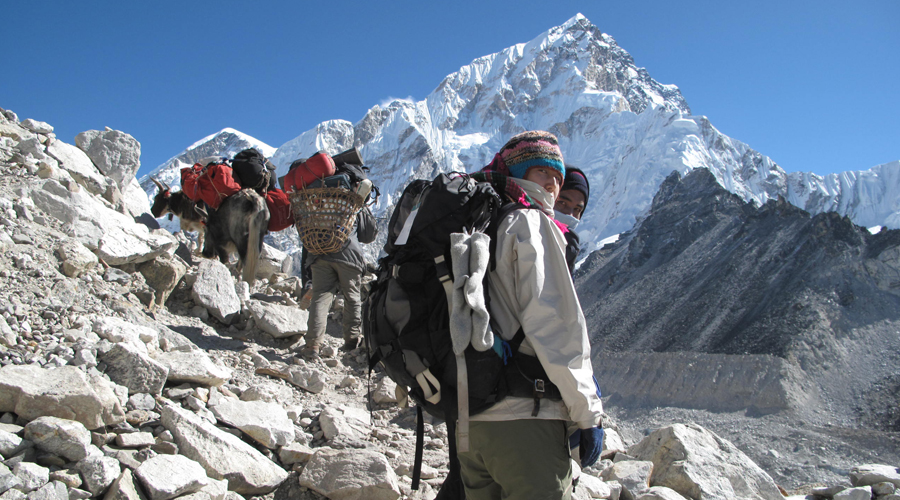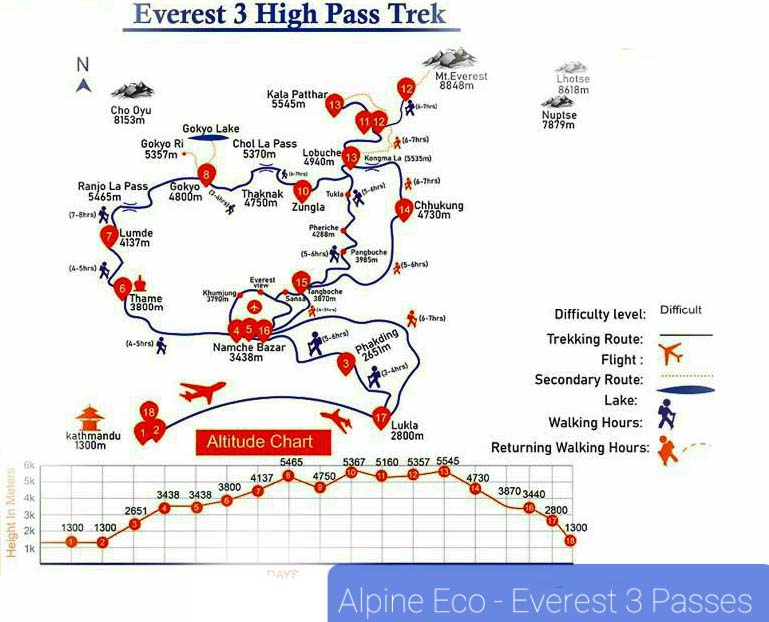Everest three passes trek: Crossing the rugged high passes, Everest 3 passes trek is one of the challenging and strenuous treks in Khumbu region of Nepal. The amazing passes are Renjo La (5338m), Chola-La (5368m), and Kangma-la. The stunning hike to the three passes link the four distinct valleys of Bhotekoshi, Gokyo, Khumbu and Imja tse of the entire Everest region, the world most popular and fascinating trekking destination. While doing this trek we will have a great opportunity to explore the other great mountain highlights such as Gokyo Ri, Gokyo Lake, Kalapather and Everest base camp. Since this is a strenuous adventure trek, it is necessary to have physically fitness and experience of doing some trekking.
Everest 3 passes trek begins from Kathmandu with a scenic flight to a small mountain airport at Lukla. The trek begins with a pleasant hike to Namche via Phakding and Monjo. We have two nights at Namche bazaar for proper acclimatization before heading to the less trodden trail towards the Thame and Lungden close the Tibet boarder. Crossing the Renjo la pass is a tough but we get rewarded with breathtaking view of parades of Himalayan giants including Mt. Everest with pristine Gokyo lakes at single frame. We hike to Gokyo Ri for more panoramic views. Our trek continues on the largest Ngonumpa glacier before crossing the Chola la pass.
We join the most popular Khumbu valley trekking route to climb Kalapather peak and to explore the Everest base camp. After EBC exploration our trek continues to Chukung valley from Lobuche crossing the amazing Kongma – la pass which is the last pass in our adventure journey. From Chukung, we trek down to Tengboche, the world famous place for its legendary monastery. We visit Tengboche monastery and trek down to Lukla via Namche Bazaar. Our tip: if you are having a problem in selecting the strenuous trekking in Khumbu region then stop searching and book this three passes trek as it covers all the highlights which this region has to offer!



